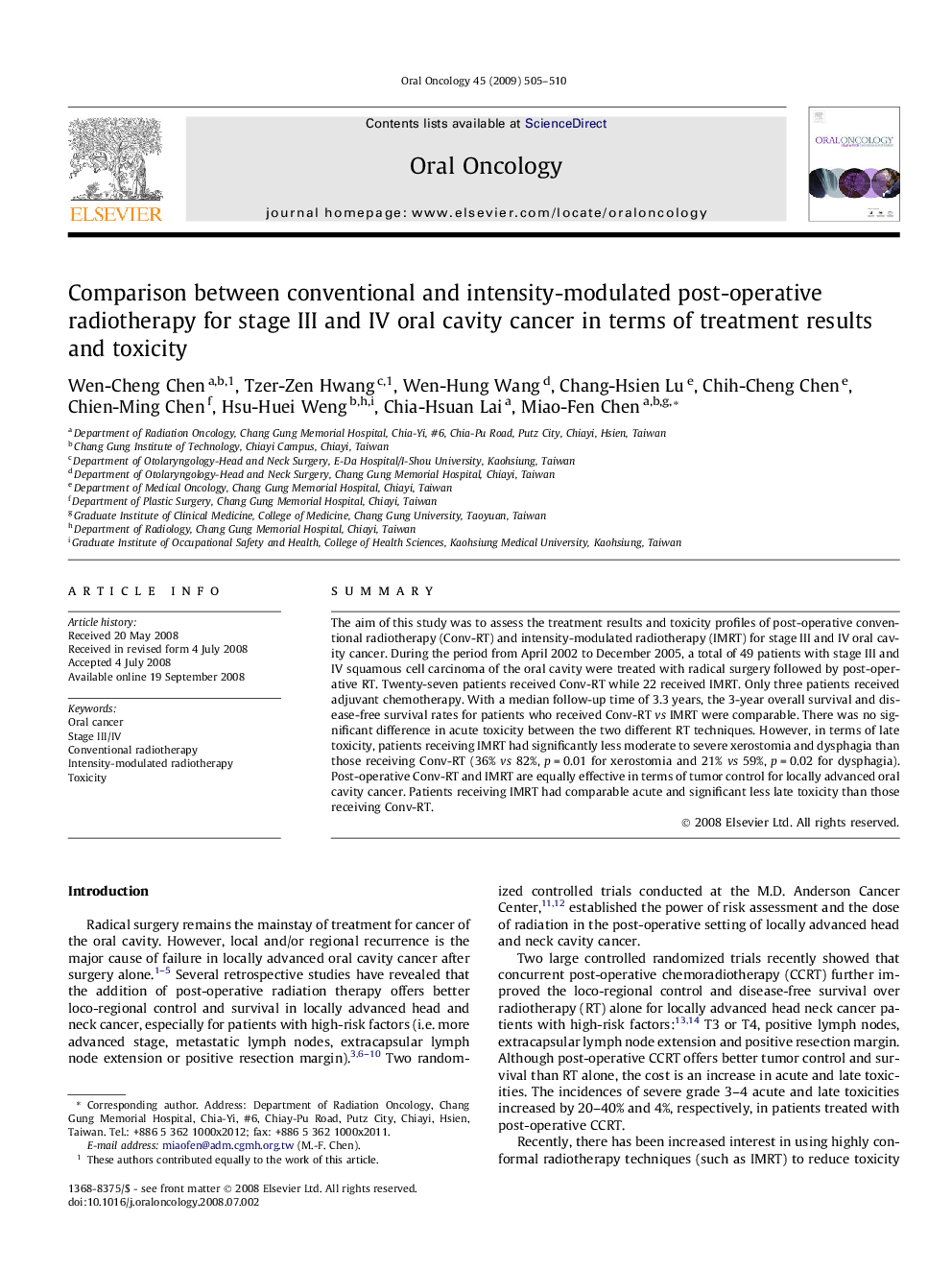| Article ID | Journal | Published Year | Pages | File Type |
|---|---|---|---|---|
| 3165290 | Oral Oncology | 2009 | 6 Pages |
Abstract
The aim of this study was to assess the treatment results and toxicity profiles of post-operative conventional radiotherapy (Conv-RT) and intensity-modulated radiotherapy (IMRT) for stage III and IV oral cavity cancer. During the period from April 2002 to December 2005, a total of 49 patients with stage III and IV squamous cell carcinoma of the oral cavity were treated with radical surgery followed by post-operative RT. Twenty-seven patients received Conv-RT while 22 received IMRT. Only three patients received adjuvant chemotherapy. With a median follow-up time of 3.3 years, the 3-year overall survival and disease-free survival rates for patients who received Conv-RT vs IMRT were comparable. There was no significant difference in acute toxicity between the two different RT techniques. However, in terms of late toxicity, patients receiving IMRT had significantly less moderate to severe xerostomia and dysphagia than those receiving Conv-RT (36% vs 82%, p = 0.01 for xerostomia and 21% vs 59%, p = 0.02 for dysphagia). Post-operative Conv-RT and IMRT are equally effective in terms of tumor control for locally advanced oral cavity cancer. Patients receiving IMRT had comparable acute and significant less late toxicity than those receiving Conv-RT.
Related Topics
Health Sciences
Medicine and Dentistry
Dentistry, Oral Surgery and Medicine
Authors
Wen-Cheng Chen, Tzer-Zen Hwang, Wen-Hung Wang, Chang-Hsien Lu, Chih-Cheng Chen, Chien-Ming Chen, Hsu-Huei Weng, Chia-Hsuan Lai, Miao-Fen Chen,
